Printing a brand new chapter of environmental stewardship in Vietnam
When Hong Kong-based Leo Paper Group sought to expand beyond Mainland China, the company chose Vietnam. For paper printing and packaging industry professionals, such a move may not seem surprising. Vietnam is a paper powerhouse, with the industry contributing about $2 billion to the nation’s economy in 2021.
The sector’s potential is impressive, with an expected compound annual growth rate of 7.5 per cent to 2027. By then, Vietnam’s paper industry will be worth over $3 billion. Much of this growth is being fuelled by burgeoning e-commerce in Asia, which in turn is driving an unprecedented need for cardboard delivery boxes. In Vietnam, for example, 49.3 million people shop on e-commerce platforms, which is more than half the nation’s 2021 population.
For Leo Paper, Vietnam offers further benefits, in addition to its cost-competitive labour force. The country’s strategic location within the region enables manufacturers to ship faster to overseas markets, saving time and costs, while reducing the carbon footprint of paper exporters. It also enables the company to benefit from the bloc’s trade agreements, as well as its commitment to drive regional stability and prosperity.
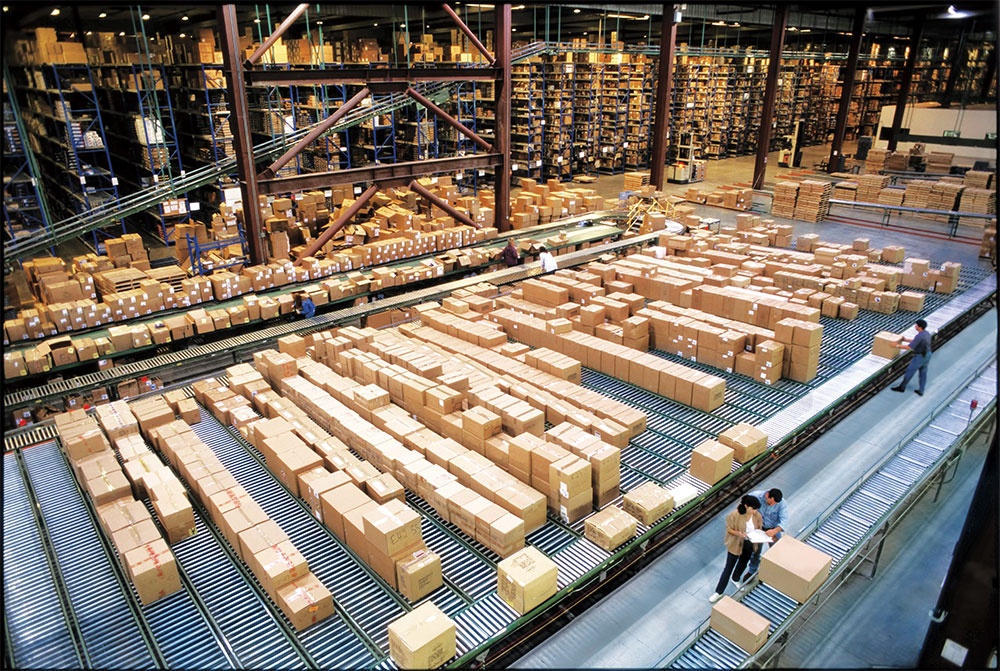 |
| Vietnam’s paper industry contributed about $2 billion to the nation’s economy last year, and by 2027 it will be worth more than $3 billion. Groups like Leo Paper are determined to reduce their environmental footprint, and it has been teaming up with Standard Chartered with the bank extending a $13.5 million trade finance credit facility to help fund the manufacture and export of paper products overseas |
Environmental challenges
As with many sectors, a looming challenge for the paper printing and packaging industry is balancing high growth with its environmental impact. Despite manufacturers typically being able to recycle paper products by up to seven times, environmental challenges exist. Waste can be a noteworthy issue for paper printing and packaging companies like Leo Paper: globally, cardboard reportedly accounts for 40 per cent of total municipal waste. And chemicals are often used to make and brand their cardboard boxes.
An additional drawback for these companies is high water and energy usage. As such, there is a need to explore means of reducing water and electricity consumption, while maintaining business production and other daily operations.
Financing needs
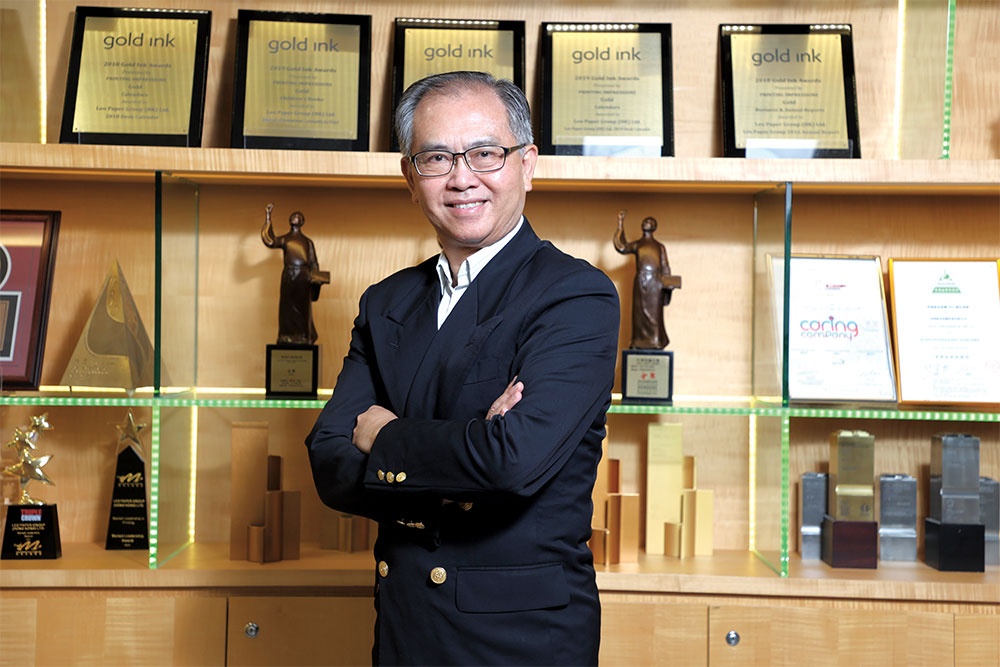 |
| “Our collaborative partnership with Standard Chartered not only helps create thriving economies in Vietnam, it also demonstrates how we can build a more sustainable future together.” - King Lai Group executive director and CFO Leo Paper Group |
For most paper printing and packaging companies, a further challenge is cashflow. The cashflow cycle lasts for months from cash paid out to payment collected. In the cardboard segment for example, explained King Lai, group executive director and CFO of Leo Paper, manufacturers commonly pay cash on delivery (COD) for bulk paper purchase.
However, it usually takes months for the paper products to be made in the factory, shipped to buyers such as e-commerce fulfilment houses, who only pay for the boxes typically on 30- and 60-day payment terms upon delivery. As a result, most paper printing and packaging manufacturers have to wait months before they receive payment for a finished product, despite needing to pay COD for raw materials. This process is widespread in the paper printing and packaging industry globally, added Lai.
“Financial support is especially vital for our industry,” he asserted. “No one can be in business without it.” Each day, the company is challenged to lower its environmental footprint, and critically, to meet its cashflow shortfall. The ideal solution would therefore be a single remedy that could address both.
Close support
When Leo Paper decided to open a subsidiary in Vietnam, an early priority was to speak to the company’s bank. Leo Paper has enjoyed a close relationship with Standard Chartered Hong Kong for over 25 years, with the bank providing a wide range of services to help the company expand domestically and overseas.
This close relationship would prove advantageous in 2019, enabling Leo Paper to open its in-country bank account within a month of incorporating its Vietnam subsidiary. Standard Chartered went above and beyond to move things forward, as the bank already had most of the required documents in place. With regular reviews and updates, the validity of the account and company information helped to facilitate the opening of the Standard Chartered bank account in Vietnam.
Other important factors that led to Leo Paper partnering with Standard Chartered included the bank’s long history of operating in Vietnam since 1904. This is especially useful as deep local knowledge is critical in helping a foreign company expand into Vietnam. For instance, providing insights on where best to locate a factory, or ways to source a cost-competitive labour force.
Leo Paper not only benefitted from Standard Chartered Vietnam team’s expertise on local regulations, best practices and lessons learnt from the experience of other clients; they were also able to gain from the bank’s global network, where collaboration and information sharing between the Vietnam and Hong Kong teams contributed to their smooth and successful entry into this new market. Three years on, with machinery and workforce in place, Lai began discussing Leo Paper’s credit needs to help finance its Vietnamese operations.
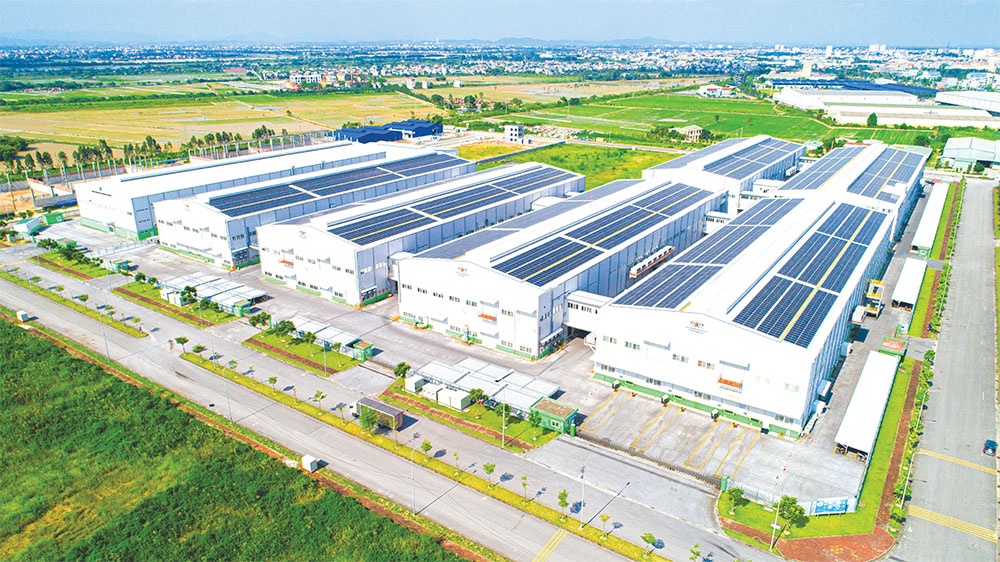 |
Rewarding sustainable action
To incentivise Leo Paper’s determination to reduce its environmental footprint, Standard Chartered extended a $13.5 million trade finance credit facility, to help fund the manufacturing and exporting of paper products to overseas markets. Critically, the facility’s interest rate is linked to two key environmental targets – namely the reduction of Leo Paper’s hazardous waste and total waste intensity to pre-determined levels over a designated period of time, agreed between the company and Standard Chartered. If these targets are met, the bank will in turn provide financial incentives.
The line of credit complements a sustainability-linked hedging facility, issued by Standard Chartered Hong Kong, to manage Leo Paper’s foreign exchange risks, and is set to the same waste targets. It also supports Leo Paper’s own environmental agenda, which includes reducing the company’s CO2 emissions and wastewater, among other goals, in pre-set increments by 2025. Since 2021, Leo
Paper has been implementing measures to meet these targets, through the development of wastewater treatment plants and installation of energy-efficient equipment.
Collaborative partnerships
The trade finance credit facility is Leo Paper’s first sustainable finance transaction in Vietnam. Together with Standard Chartered’s partnership, it likely will not the last, enthused Lai.
“By undertaking its first sustainability-linked USD trade finance credit facility in Vietnam, Leo Paper is charting a new and exciting course, showing how companies in Vietnam can rise to environmental challenges in partnership with their bank,” said Nguyen Thuy Hanh, head of Corporate, Commercial, and Institutional Banking at Standard Chartered Vietnam. She believes there will be more partnerships like this within the burgeoning Mekong market. “By pioneering corporate sustainability within Vietnam, Leo Paper becomes a model for companies keen to pursue sustainability endeavours but have yet to make such locked-in commitments and take concrete steps towards them.”
For Lai, businesses like this represent part of a growing move towards a more sustainable future. Many have yet to fully explore how they are impacting the environment and society, while others are unaware of the global and local issues that they can actively support.
Enabling peers through knowledge-sharing is key in this regard, hence Lai’s endeavours to tell the Leo Paper story. “A lot of education is needed, so that businesses of all types can engage in sustainable business practices,” he explained. “That’s also where collaborative partnerships come into play, and where companies like Leo Paper and Standard Chartered can positively encourage customers and suppliers. Such partnerships not only help create thriving economies in Vietnam and beyond, they also demonstrate how, collectively, we can build a more sustainable future”.
For more insights on ASEAN, please visit: www.sc.com/asean-insights
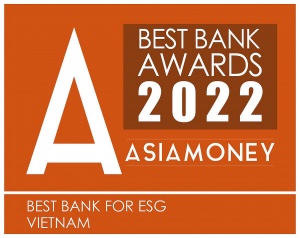 | Standard Chartered named Best ESG Bank in Vietnam in 2022 by Asiamoney Standard Chartered Bank Vietnam has been named the Best ESG Bank in Vietnam in 2022 by Asiamoney. The award recognises the bank’s outstanding efforts in driving the application of environmental, social, and governance (ESG) standards in Vietnam. |
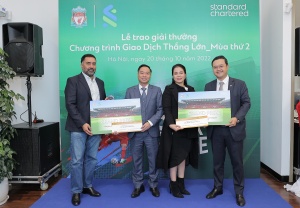 | Standard Chartered Vietnam offers unique experience to clients Standard Chartered Vietnam today presented the grand prize – a life-time trip to Anfield stadium, home of Liverpool Football Club in the United Kingdom, to the winners of the second season of its “Bank more, Score more” campaign. |
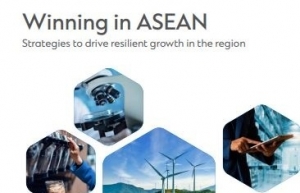 | Corporates optimistic on ASEAN business opportunities British lender Standard Chartered today launched its “Winning in ASEAN” report, showcasing business sentiment, opportunities, and strategies corporates can undertake to navigate the global shifts and drive growth in the region. |
What the stars mean:
★ Poor ★ ★ Promising ★★★ Good ★★★★ Very good ★★★★★ Exceptional
Related Contents
Latest News
More News
- EU and Vietnam elevate relations to a comprehensive strategic partnership (January 29, 2026 | 15:22)
- Vietnam to lead trade growth in ASEAN (January 29, 2026 | 15:08)
- Japanese business outlook in Vietnam turns more optimistic (January 28, 2026 | 09:54)
- Foreign leaders extend congratulations to Party General Secretary To Lam (January 25, 2026 | 10:01)
- 14th National Party Congress wraps up with success (January 25, 2026 | 09:49)
- Congratulations from VFF Central Committee's int’l partners to 14th National Party Congress (January 25, 2026 | 09:46)
- 14th Party Central Committee unanimously elects To Lam as General Secretary (January 23, 2026 | 16:22)
- Worldwide congratulations underscore confidence in Vietnam’s 14th Party Congress (January 23, 2026 | 09:02)
- Political parties, organisations, int’l friends send congratulations to 14th National Party Congress (January 22, 2026 | 09:33)
- Press release on second working day of 14th National Party Congress (January 22, 2026 | 09:19)

 Tag:
Tag:


















 Mobile Version
Mobile Version